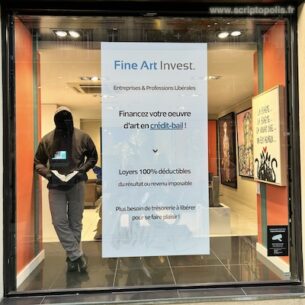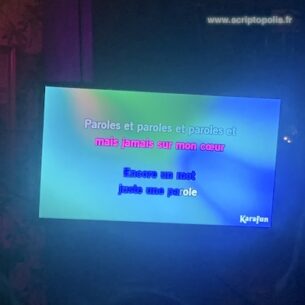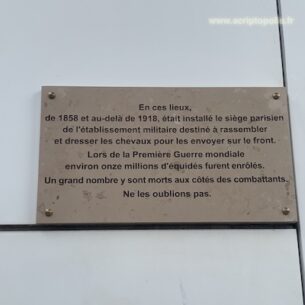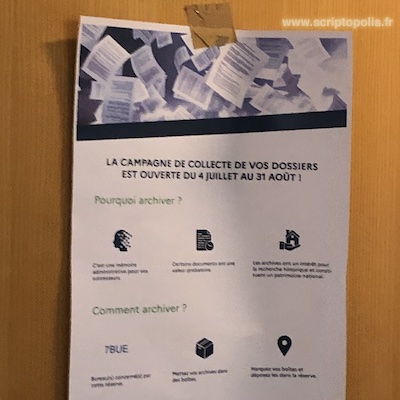Moral Archives
In this hot summer month, the door of the closet housing the photocopier reminds the agents of the Ministry of Finance that their writings are governed by other temporalities than those directly registered in the exchanges of emails, notes and tables relating to the forecast of the next budget or the execution of that of the current year. An irruption of the past and the future into the present, their writings are indeed the subject of an archiving campaign. For those who have participated in the activities of the French presidency of the European Union which is coming to an end, it means to sort documents, store them in boxes and deposit them in a cupboard where an archivist will pick them up and check them.
The publicity of this campaign, beyond the office concerned and those that ensure its success, is part of the diffuse awareness of a moral organization of the ministry, by which the result of their work will be read, not only by archivists accompanying the life of what will become a collection, but also by readers, to whom they become collectively accountable. By apprehending the archiving process as the operator of a moral conscience, here we are, once again, on the path of a non-mentalist and distributed understanding of the State in thought, which invites us to consider the active role of writings in what Durkheim calls democratic life. It seems both situated and fragile.







